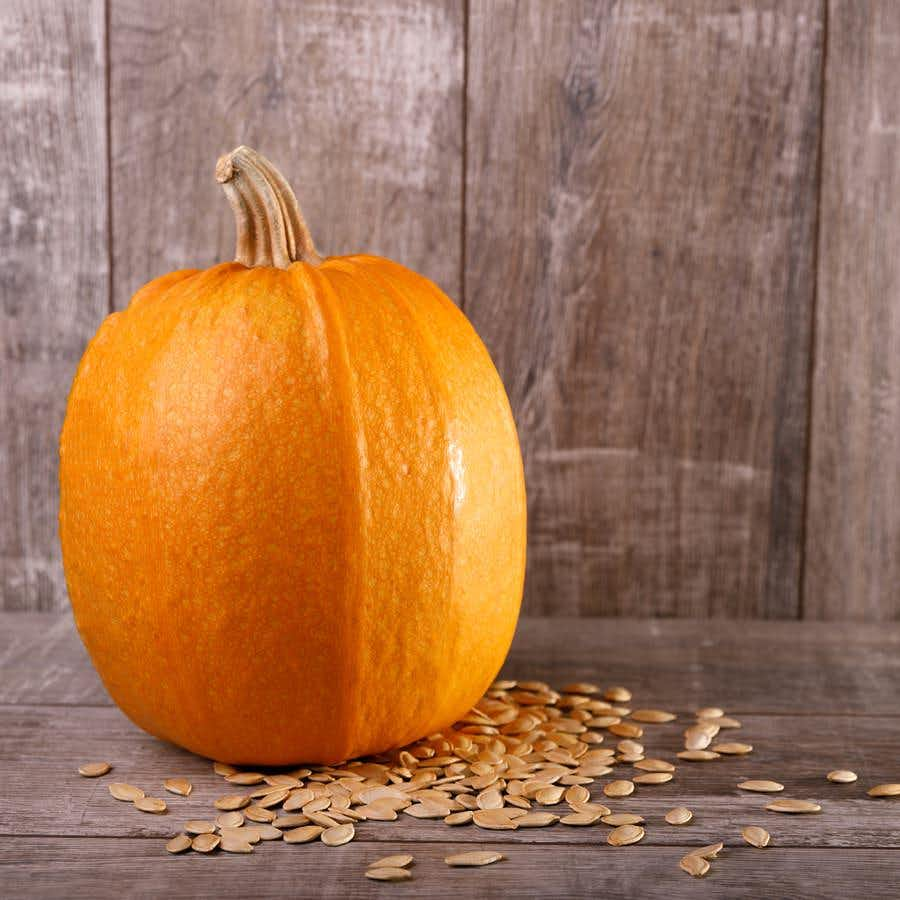
How often do you have to get up at night to visit the bathroom? Some people sleep through the night with no difficulty but others have their sleep disrupted because they need to urinate every few hours. One reader suggested an unorthodox treatment for this problem: pumpkin seed oil!
Will Pumpkin Seed Oil Help Control Nighttime Urination?
Q. My husband uses roasted pumpkin seed oil on his salads. He learned to love it growing up in Austria where it is very popular.
One evening I read that it is good for urological issues. I’ve been plagued with UTIs and often have to get up in the middle of the night to trek to the bathroom. I decided to give it a try.
Even though I was VERY skeptical, I am thrilled. I’ve taken the capsules for probably two years or more, and I haven’t had a UTI in more than a year. Also, I do not get up at night any longer. UTIs are a nightmare, so this is a real benefit.
A. Pumpkin seed oil is rich in healthful mono- and polyunsaturated fatty acids (Foods, March 2018). It has a reputation for helping men with enlarged prostates manage their urinary difficulties (Archivio Italiano di Urologia, Andrologia, July 4, 2016). Scientists report that it may be used to treat symptoms such as nocturia (frequent nighttime urination) and overactive bladder (Journal of Traditional and Complementary Medicine, Jan-March, 2014).
We could find no studies demonstrating that pumpkin seed oil can prevent urinary tract infections (UTIs). We are sure you appreciate your relative freedom from these infections, however.
Is Pumpkin Seed Oil Risky?
Q. You talked about seed oils in a recent podcast. I found it worrisome, but I didn’t hear you mention anything about pumpkin seed oil. It’s supposed to be good for skin, nails, hair and urinary tract. Is this correct? I have been taking three teaspoons of pumpkin seed oil twice a day. Should I stop?
A. There is some new research suggesting that cooking oils high in omega-6 fatty acids might be associated with both prostate and colorectal cancers. You can hear our conversation with the investigators by listening to podcast show 1420 “The Cooking Oil Controversy Spotlights Cancer.”
Many popular seed oils contain far more omega-6 than omega-3 fatty acids. Pumpkin seed oil is right up there with sesame, safflower and corn oils. Olive, canola and walnut oils are lower in omega-6 content.
Some data suggests that supplements of this oil might be helpful for men with enlarged prostate glands resulting in urinary problems (World Journal of Urology, July 2022). Other research indicates possible benefit for wound healing, hair growth and anti-inflammatory activity (Plants, May 24, 2022).
We can’t say whether you should stop. There don’t appear to be many signals pointing to problems with this particular oil.
Citations
- Montesano D et al, "Chemical and nutritional characterization of seed oil from Cucurbita maxima L. (var. Berrettina) pumpkin." Foods, March 2018. DOI: 10.3390/foods7030030
- Damiano R et al, "The role of Cucurbita pepo in the management of patients affected by lower urinary tract symptoms due to benign prostatic hyperplasia: A narrative review." Archivio Italiano di Urologia, Andrologia, July 4, 2016. DOI: 10.4081/aiua.2016.2.136
- Nishimura M et al, "Pumpkin seed oil extracted from Cucurbita maxima improves urinary disorder in human overactive bladder." Journal of Traditional and Complementary Medicine, Jan-March, 2014. doi: 10.4103/2225-4110.124355
- Theil G et al, "Extract from Cucurbita pepo improves BPH symptoms without affecting sexual function: a 24-month noninterventional study." World Journal of Urology, July 2022. DOI: 10.1007/s00345-022-04036-w
- Batool M et al, "Nutritional value, phytochemical potential, and therapeutic benefits of pumpkin (Cucurbita sp.)." Plants, May 24, 2022. doi: 10.3390/plants11111394

